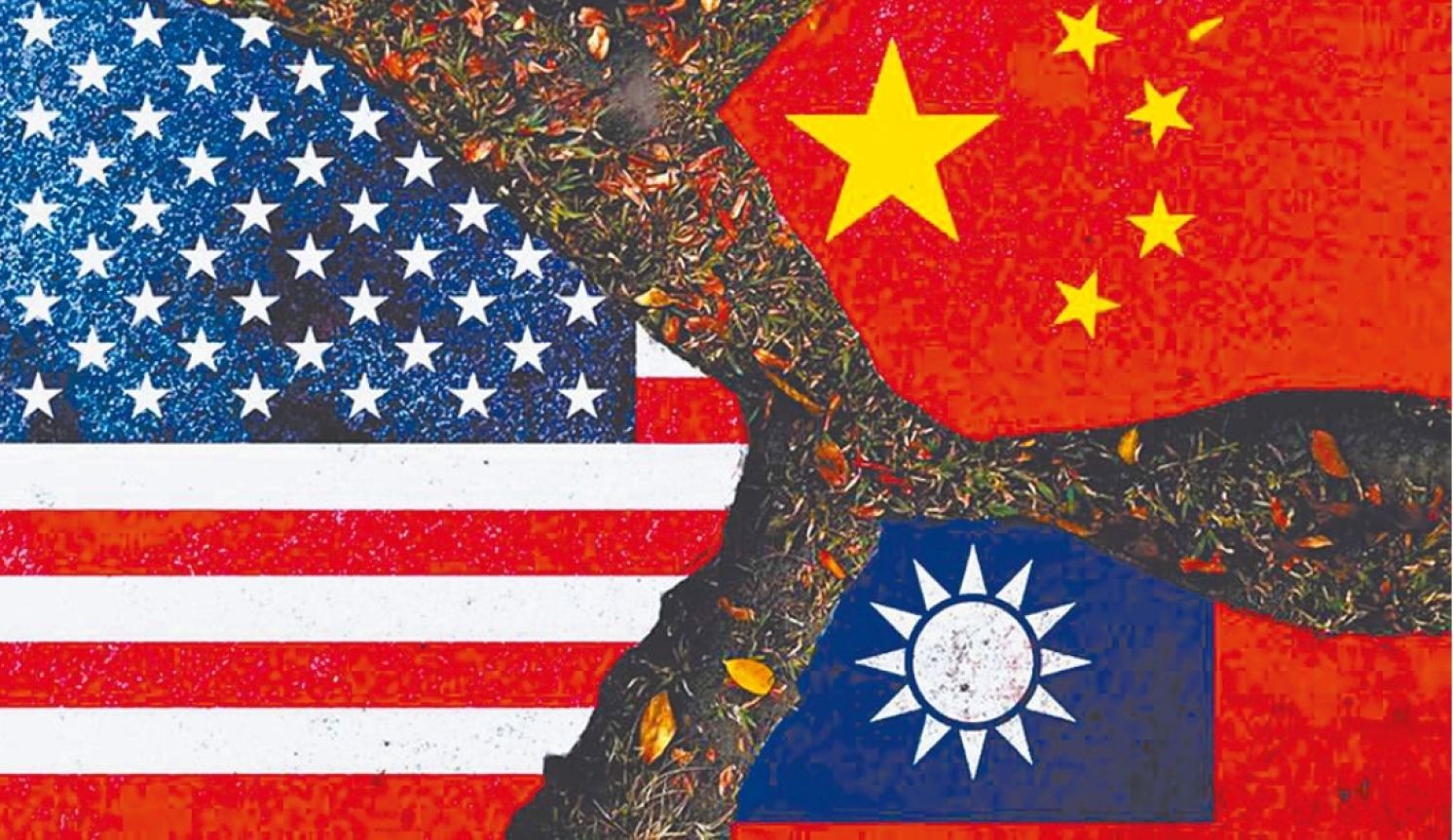
Trump Extorts Protection Money: Strategic Ambiguity Only Bluster
United Daily News Commentary, July 18, 2024
Former U.S. President Donald Trump bluntly demanded, "What has Taiwan done for us? They've [sic] taken our entire semiconductor industry, very wealthy. Taiwan should pay us protection money."
Premier Cho Jung-tai responded timidly that Taiwan appreciates the support of the United States for Taiwan's security and international participation; Taiwan is willing to take on more responsibility to defend itself and ensure security.
Mr. Trump's questioning of Taiwan in a Bloomberg Businessweek interview, and Premier Cho's response from 9,500 miles away, almost resembled a scene where a gangster threatens protection money and the shopkeeper bows nervously, doubling the payment.
What has Taiwan done for the United States? This question should be answered first by former President Tsai Ing-wen. President Lai Ching-te dared not ask Tsai to answer, nor dared he answer himself, so Premier Cho stepped in. But Cho also dared not clearly state what Taiwan has done for the United States, only hastily agreeing that Taiwan is willing to take on more responsibility.
However, Premier Cho’s willingness to pay more protection money seemed to suggest that Taiwan's $24 billion high-priced and overdue military purchases under Tsai were in vain. The sacred mountain of national defense was given away for free, and even Taiwanese people swallowed the health risks of American pork. Taiwan's self-prepared armaments as the guardian of the first island chain and its sweat on the frontline against China for the United States seemed to be for nothing. Premier Cho admitted that none of this mattered, as Taiwan would pay more protection money.
Of course, Taiwan isn't the only one Mr. Trump demands increased protection money from. The North Atlantic Treaty Organization (NATO), Japan, and South Korea face similar demands. Mr. Trump bluntly stated that if NATO allies don't pay, Russia can "do anything" to them. Fortunately, Mr. Trump didn't say that if Taiwan doesn't pay protection money, Chinese President Xi Jinping could "do anything" to Taiwan. Nevertheless, Mr. Trump's words sent chills down Taiwan's spine.
While Mr. Trump showed a tepid attitude towards countering Chinese Communist aggression against Taiwan, his demand for payment from Taiwan took on a more assertive tone. His frustration over America's semiconductor industry decline turned into anger directed towards Taiwan.
Finally, everyone understands one thing: when it comes to protecting Taiwan, Mr. Trump has always cited strategic ambiguity as a reason for reluctance to discuss further; his Vice President Mike Pence also interpreted Mr. Trump's strategy towards Taiwan as ambiguous. However, this time, Mr. Trump plainly stated: Taiwan is 9,500 miles away from the United States and just 68 miles from China. Defending a small island on the other side of the globe is practically difficult. "Why? Why should we do this?"
In other words, Mr. Trump's so-called strategic ambiguity is likely not about negotiation strategy as he claimed. His visibly hesitant stance reveals that his ambiguity is more like a bluffing tactic, and he's eager to expose his hand. Mr. Trump is ambiguous about protecting Taiwan, but crystal clear about Taiwan paying protection money. The question remains: if Taiwan pays, how will the United States protect Taiwan? The answer hangs in the air. Incumbent President Joe Biden has at a minimum mentioned deploying troops to protect Taiwan four times, but Mr. Trump hasn't even offered such a token gesture.
Understanding Mr. Trump's remarks now sheds light on the underlying implications of the phone call between President Tsai and then President-elect Trump. After Mr. Trump's election in 2016, the Tsai administration worked hard to arrange the call, yet Mr. Trump defended it by arguing that since the United States sells billions of dollars in arms to Taiwan, why shouldn't he take the congratulatory call? Despite the Tsai administration's internal propaganda emphasizing breakthroughs in U.S.-Taiwan relations, Taiwan, it turns out, was merely a client for military sales in Mr. Trump's eyes.
It appears that if Mr. Trump returns to the White House, Taiwan's situation will become even more challenging. In negotiations between Mr. Trump and Beijing, Taiwan would only be able to pay, not have a seat at the table. Mr. Trump might use Taiwan as leverage against Beijing, demanding a price. Taiwan would then have to compete with Beijing on terms it likely cannot match, potentially leading to sacrifices. The question remains: how much leverage does Taiwan really have compared to the mainland?